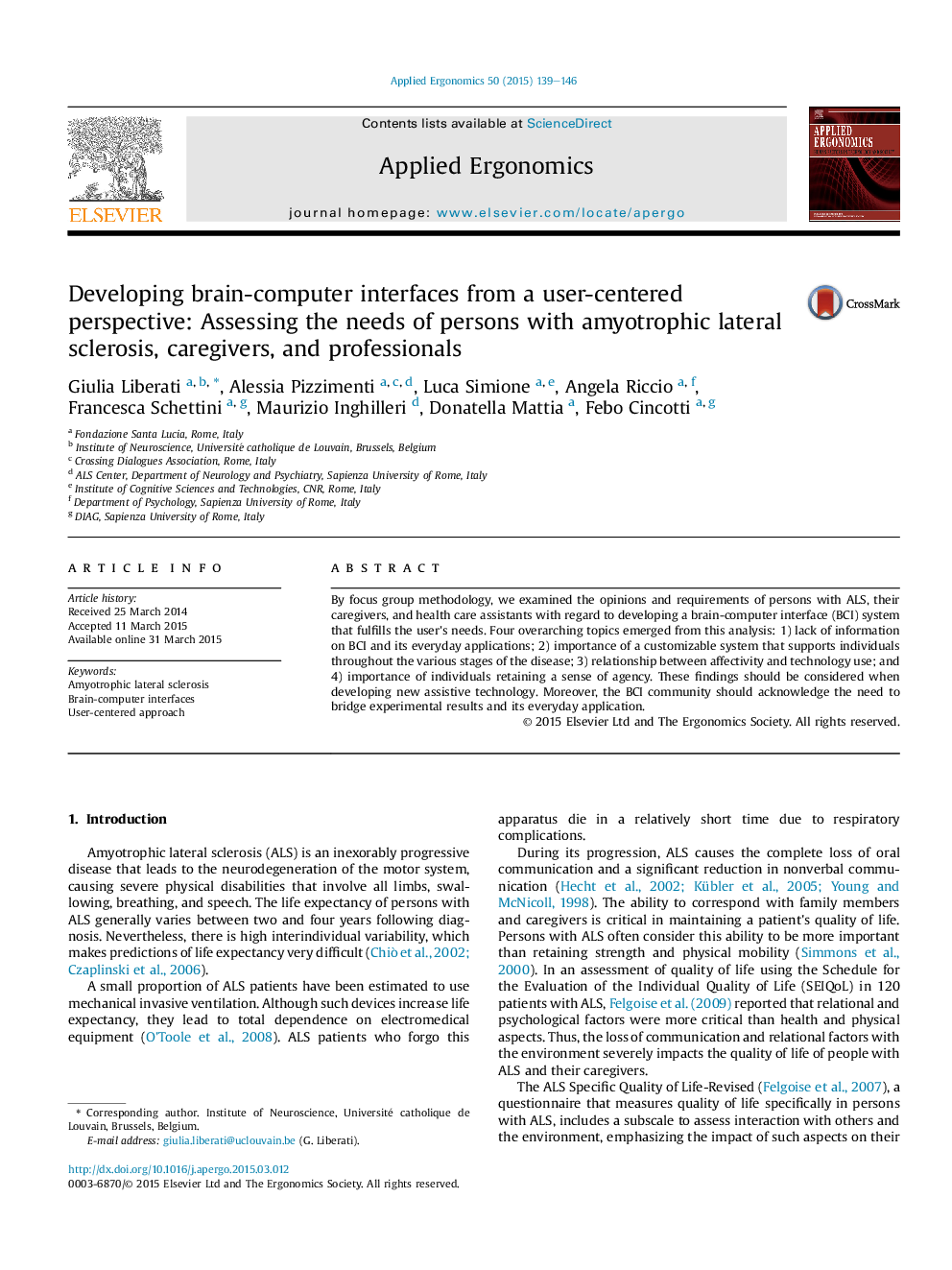| Article ID | Journal | Published Year | Pages | File Type |
|---|---|---|---|---|
| 549242 | Applied Ergonomics | 2015 | 8 Pages |
•We identified the needs of BCI end-users (persons with ALS and their contacts).•BCI end-users need more information on BCIs and everyday applications.•A BCI system should support different users through different stages of ALS.•BCIs should monitor and account for affective states.•Retaining the sense of agency is crucial for end-users with ALS.
By focus group methodology, we examined the opinions and requirements of persons with ALS, their caregivers, and health care assistants with regard to developing a brain-computer interface (BCI) system that fulfills the user's needs. Four overarching topics emerged from this analysis: 1) lack of information on BCI and its everyday applications; 2) importance of a customizable system that supports individuals throughout the various stages of the disease; 3) relationship between affectivity and technology use; and 4) importance of individuals retaining a sense of agency. These findings should be considered when developing new assistive technology. Moreover, the BCI community should acknowledge the need to bridge experimental results and its everyday application.
